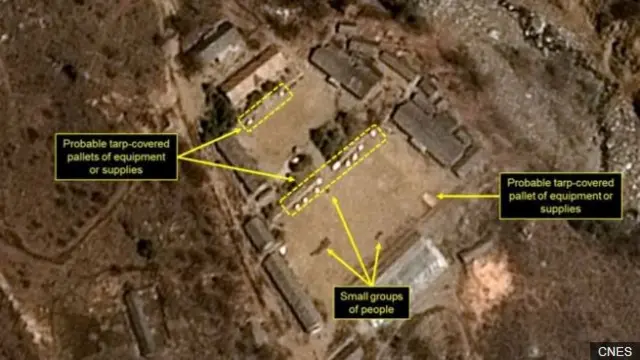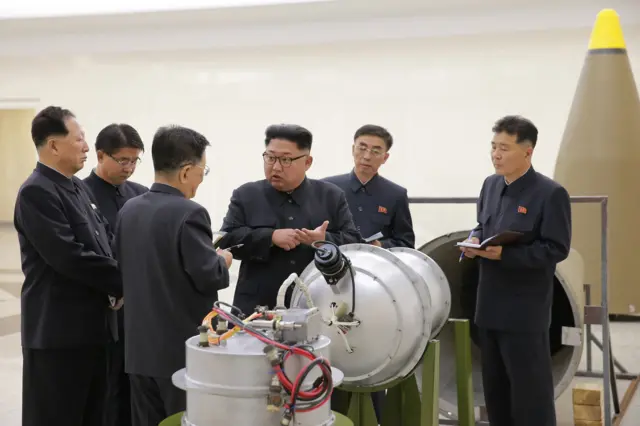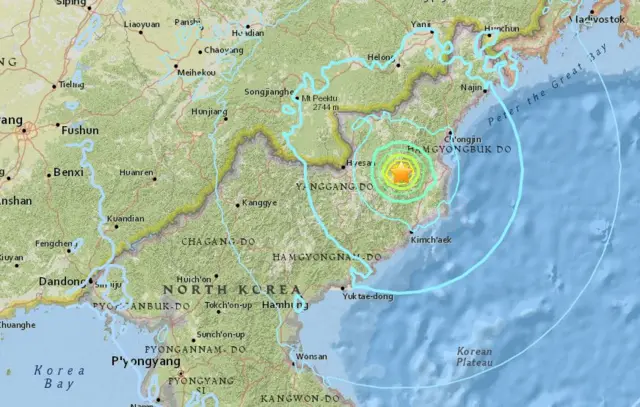Japan's Abe says nuclear test 'absolutely unacceptable'published at 06:01 BST 3 September 2017
Japan's Prime Minister, Shinzo Abe, has reacted to suggestions that a 6.3 magnitude earthquake detected in North Korea is a nuclear test.
Mr Abe said if Pyongyang had carried out such a test, it would be "absolutely unacceptable".


